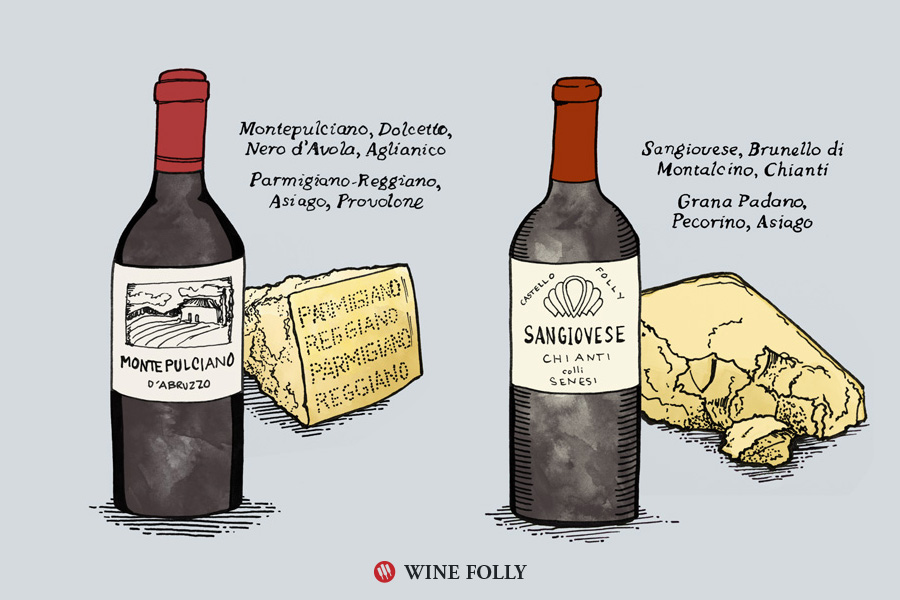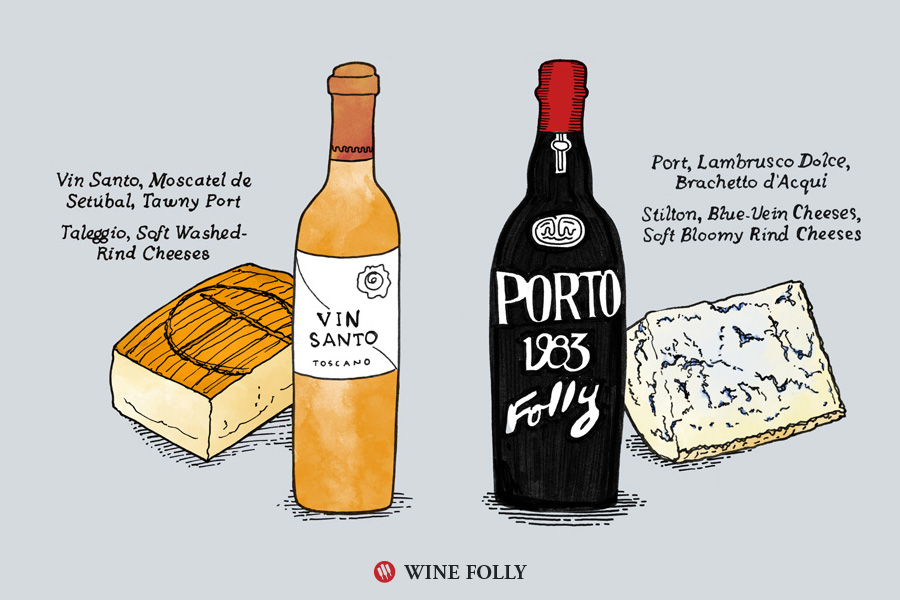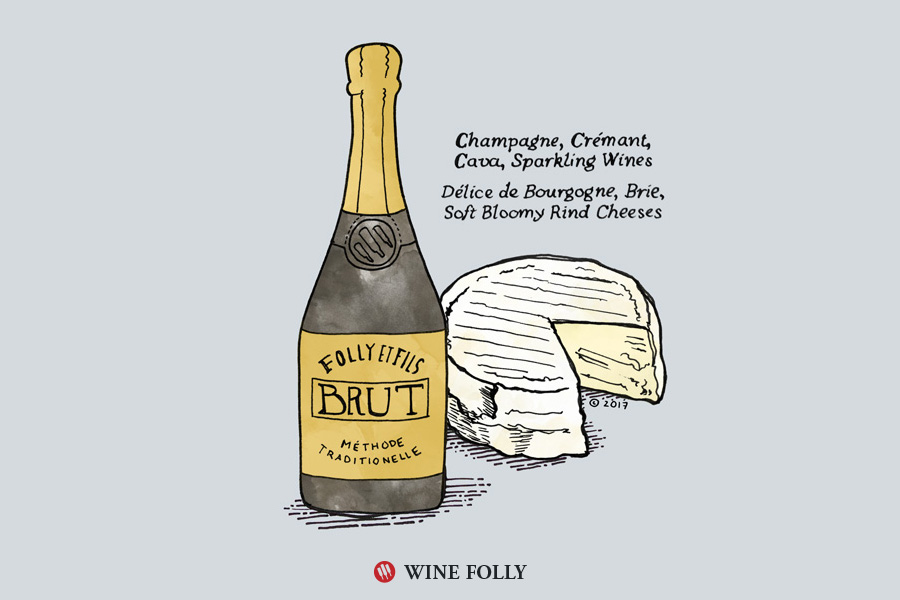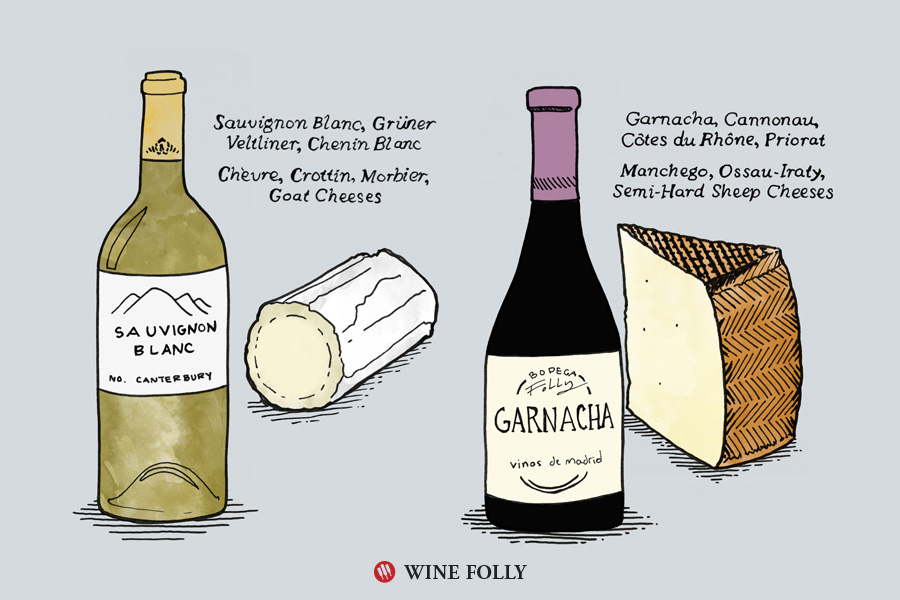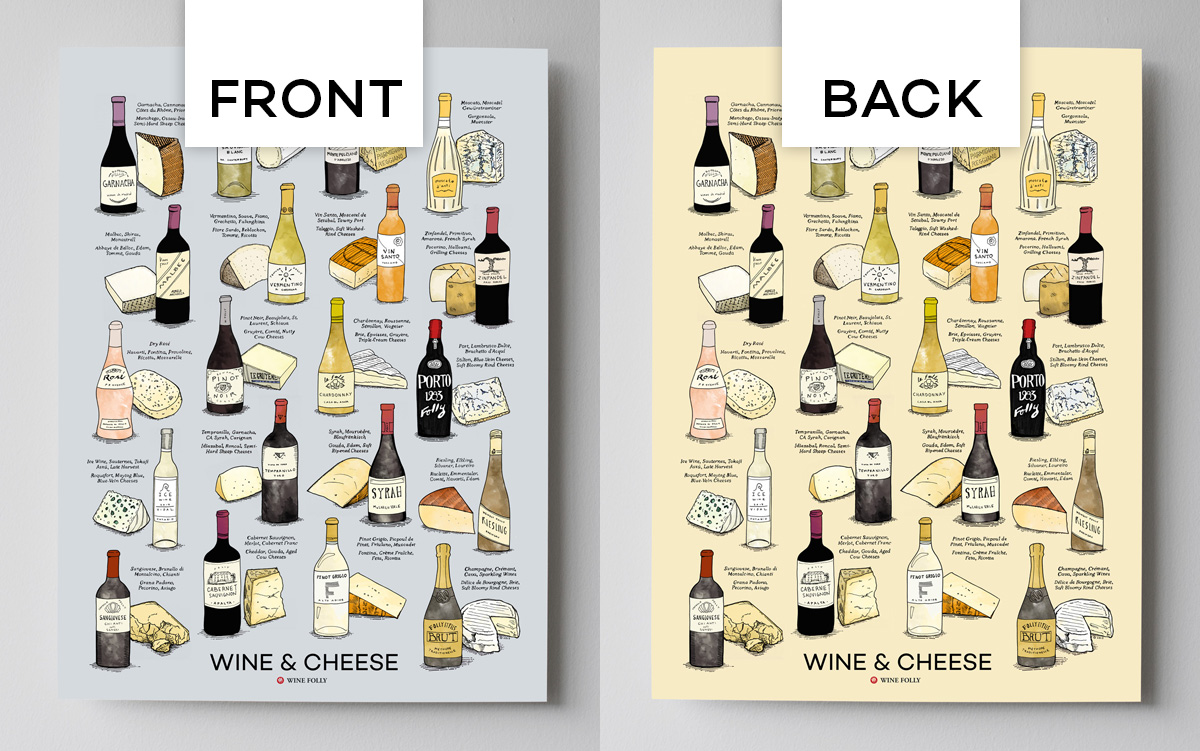Which wines pair best with what cheeses?
Armed with the right information, you can create amazing wine and cheese pairings on your own. Let’s take a look at some classic pairings and why they work, so that the next time you’re on a wine and cheese mission, you’ll have no doubt what to choose!
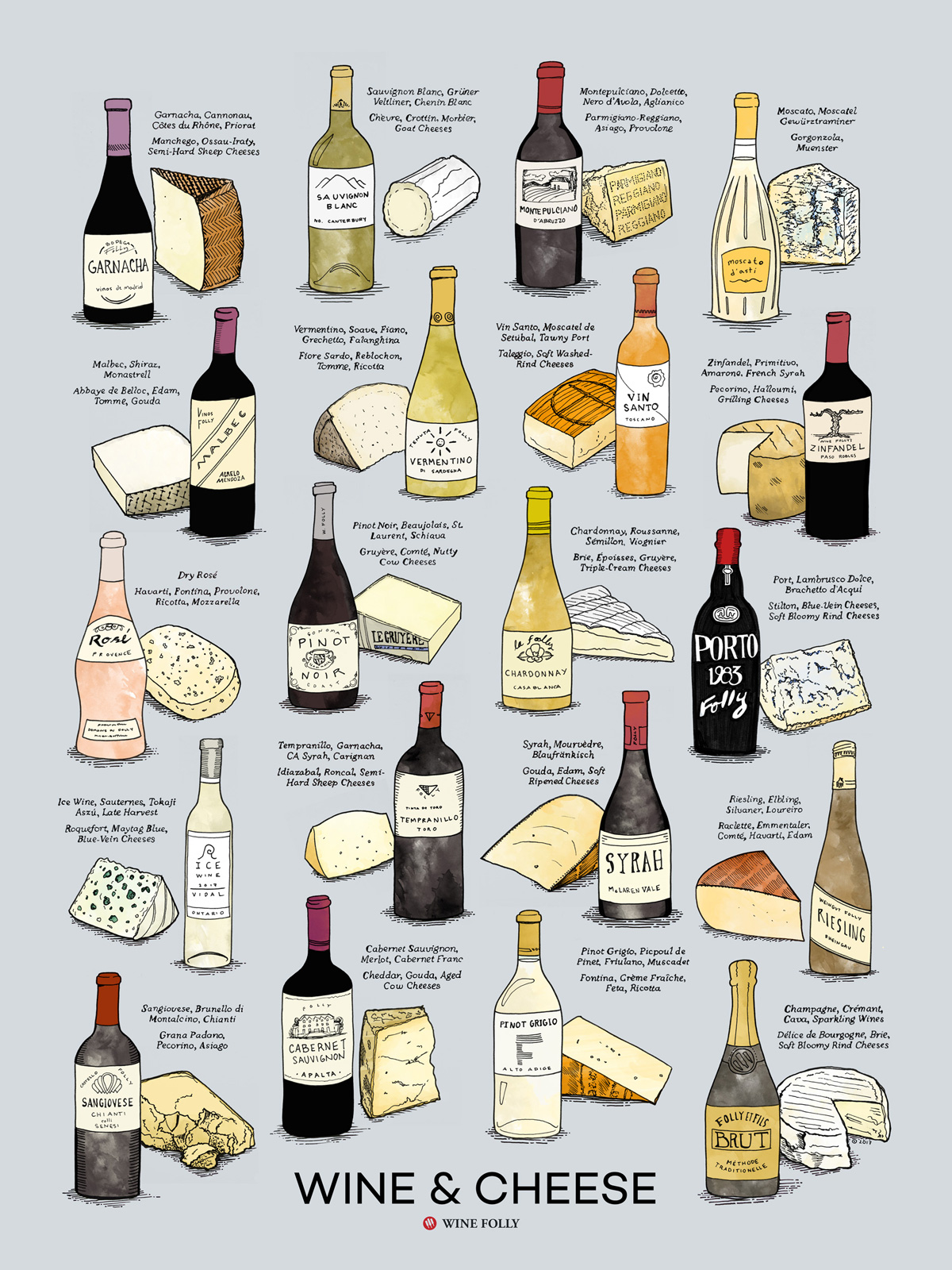
This Wine & Cheese Chart is available as a poster on the Wine Folly store.
Buy Poster
Tip #1: Pair wines and cheeses with equal intensity.
This tip is the most important takeaway for creating your own pairings. The delicate flavors of Gruyère would be overwhelmed by a big, bold Cabernet Sauvignon, but are perfectly balanced when paired alongside a Pinot Noir.
As a general rule:
- Wines over 14.5% ABV are more intense and taste better with more intensely flavored cheeses.
- Wines under 12% ABV are less intense and match nicely with more delicately flavored cheeses.
Tip #2: Bold red wines pair best with aged cheeses.
As cheese ages and loses water-content, it becomes richer in flavor with its increased fat content.
These two attributes are ideal for matching bold red wines because the fat content in the cheese counteracts the high-tannins in the wine. For the best results, select cheeses aged at least a year, including Cheddar, Gruyère, Manchego, Gouda, Provolone, or Parmesan-style varieties like Parmigiano-Reggiano and Grana Padano.
Tip #3: Match super funky cheeses with sweeter wines.
Sweeter wines like Moscato, Gewürztraminer, Late Harvest dessert wines, and Port match wonderfully with stinky, washed-rind, and blue-veined cheeses.
Why? The sweetness in the wine helps balance the “funk” in the cheese and makes it taste creamier. Also, the “stink” of the cheese will help balance the sweet taste of the wine.
Two classic pairings you must try if you like funky cheeses are Port with Stilton and Sauternes with Roquefort. Delicious!
Tip #4: Sparkling wines are incredible with soft, creamy cheeses.
Sparkling wines have high acidity and carbonation, which offer a palate-cleansing effect to creamy, sticky cheeses such as Brie, Muenster, Camembert, Cremont, or Époisses de Bourgogne.
Tip #5: Wines and cheeses from the same place pair well together.
More often than not, you’ll do well to trust the local traditions and match wines and cheeses from the same region together. A few great examples of this include Sauvignon Blanc with Goat Cheese (Loire Valley, France), Chardonnay with Époisses de Bourgogne (Burgundy, France), and Garnacha with Manchego (Spain).
Tip #6: When in doubt, get a firm, nutty cheese.

When serving several wines, and you’re not sure which cheese to pair, one of the safest bets and most popular choices with all styles of wines is a firm, nutty cheese.
The cheese will have enough fat to counterbalance tannin in red wine, but enough delicacy to compliment delicate whites. A few examples include Swiss, Gruyère, Abbaye de Belloc, Comté Extra, Emmental, and Gouda.
Get the Wine & Cheese Poster
Display your love of wine and cheese with this amazing two-sided poster. Made with love in Seattle, WA, USA.

